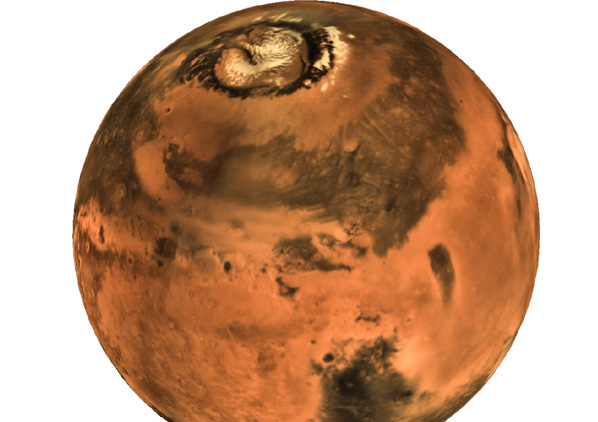Martian environment is likely even more harmful to living cells than previously imagined. The combination of UV radiation and perchlorates common on Mars could be deadly for bacteria.
Researchers from Edinburgh University in the UK found that when certain chemicals react with ultraviolet radiation from the sun, a toxic compound can result that can kill some bacteria.
When irradiated with a simulated Martian UV flux, perchlorates become bacteriocidal. At concentrations associated with Martian surface regolith, vegetative cells of Bacillus subtilis in Martian analogue environments lost viability within minutes. Two other components of the Martian surface, iron oxides and hydrogen peroxide, act in synergy with irradiated perchlorates to cause a 10.8-fold increase in cell death when compared to cells exposed to UV radiation after 60 seconds of exposure.
UV light alone able to kill bacterial cells. UV light and perchlorates become more dangerous Mars is highly deleterious to cells, caused by a toxic cocktail of oxidants, iron oxides, perchlorates and UV irradiation.
Source: Scientific Reports
